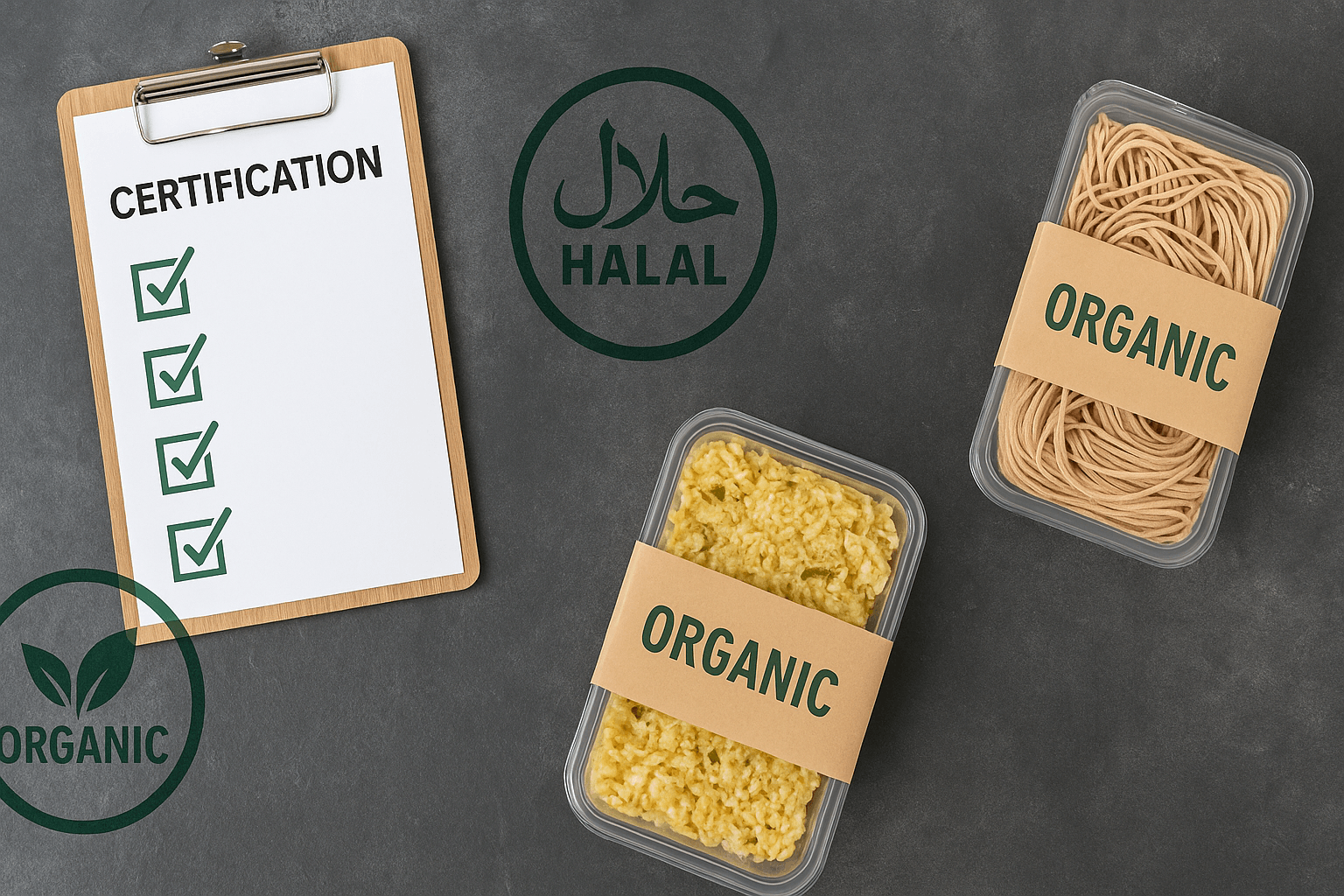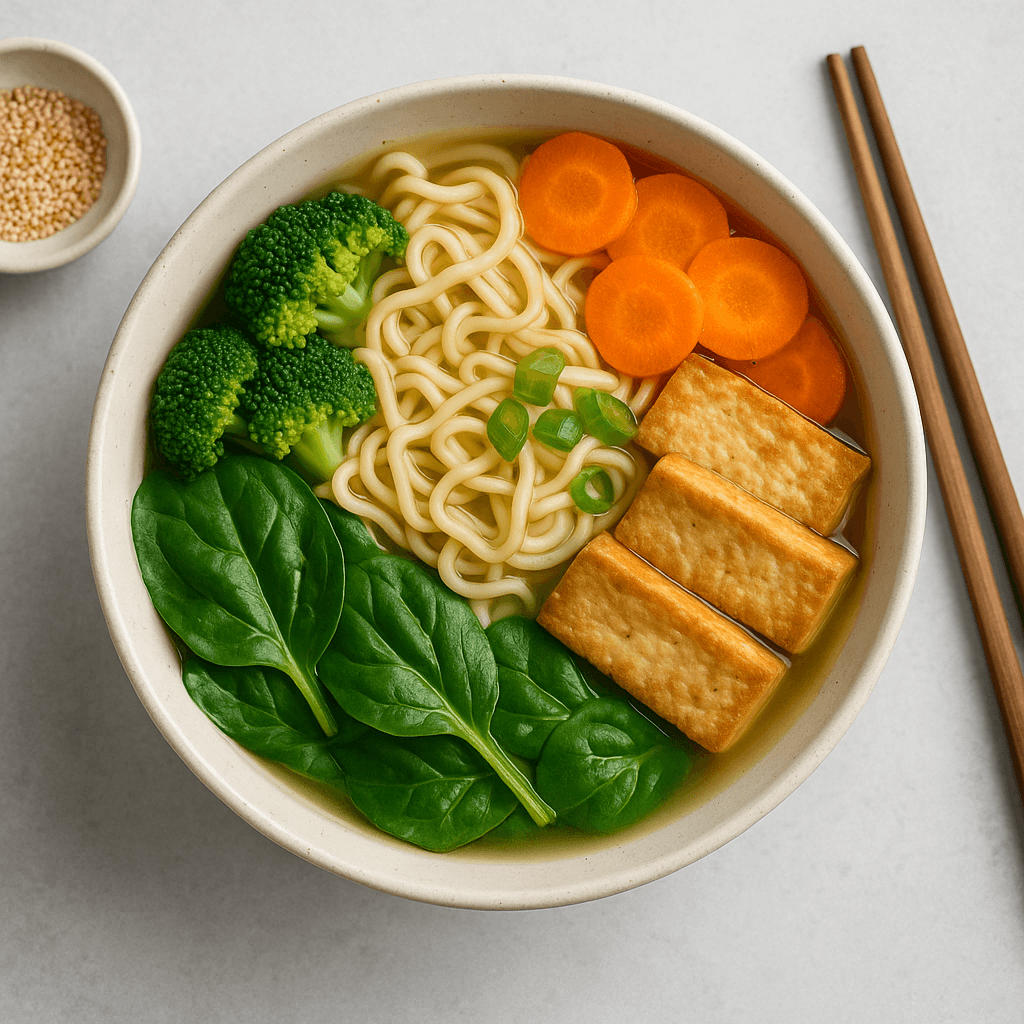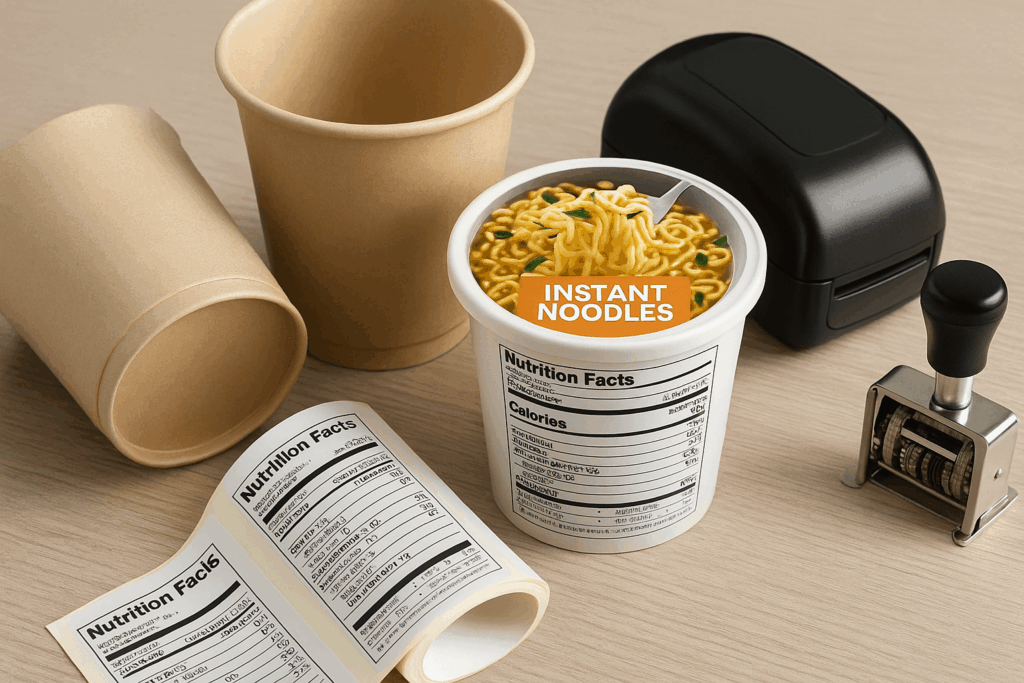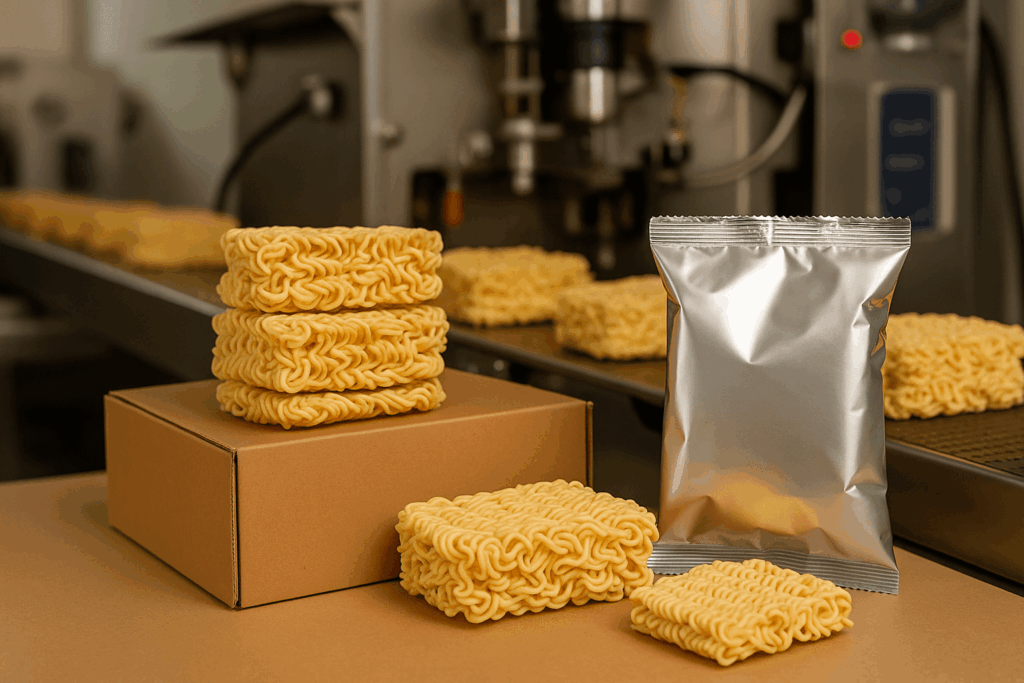If you’re planning to export instant noodles or ready meals to the Middle East, Europe, or Southeast Asia, having Halal and Organic certifications can open major markets — and block you from entry if you’re not prepared.
At Kimdee, we help food brands meet international compliance standards and obtain the right certifications to export smoothly.
Here’s your go-to checklist for getting Halal and Organic certified for export.
✅ 1. Know Your Target Market’s Certification Requirements
| Region | Common Certifications |
|---|---|
| UAE / Middle East | Halal (recognized by GCC or JAKIM) |
| EU | EU Organic Certification, EcoCert |
| USA | USDA Organic, Halal recognized by IFANCA or HFSAA |
| Southeast Asia | Halal (JAKIM), Optional Organic (Singapore, Malaysia) |
Different countries may recognize different certification bodies. Working with a manufacturer familiar with these nuances is critical.
✅ 2. Halal Certification Requirements
To be certified Halal, your product must meet:
Ingredient review: No pork, alcohol, animal enzymes, or cross-contamination
Facility standards: Dedicated tools/equipment or certified cleaning procedures
Traceability system: Ingredient origins must be documented
Ongoing audits: Annual renewal and spot checks by Halal authority
📦 Kimdee operates Halal-certified production lines, and we manage audits and documentation for export clients.
✅ 3. Organic Certification Requirements
To achieve Organic status, your product must:
Contain 95%+ certified organic ingredients
Be free from synthetic pesticides, GMOs, antibiotics, and irradiation
Be processed in certified organic facilities
Maintain supply chain traceability and undergo third-party audits
Kimdee works with certified organic suppliers and supports organic production upon request.
✅ 4. Required Export Documentation
| Document | Purpose |
|---|---|
| Halal Certificate | From recognized authority (JAKIM, HFSAA, etc.) |
| Organic Certificate | USDA, EU Organic, or equivalent |
| Ingredient Breakdown | For customs clearance and compliance verification |
| Product Label | Must reflect certification claims accurately |
| Certificate of Origin | Proves manufacturing source (often from Chamber of Commerce) |
We supply all export-compliant documentation as part of our OEM support.
✅ 5. Don’t Forget Labeling Rules
Your label must:
Match the certification claims
Include certifying body logo
Be printed in official language(s) of the destination country
Avoid unauthorized organic or halal claims
👉 Read our full guide on export-ready food labeling
✅ Why Brands Work with Kimdee
HACCP / ISO / Halal-certified facilities
Organic-ready ingredient sourcing
Full label + document compliance
Export-ready packaging for EU, US, UAE, and more
Fast production and logistics under one partner
📦 We help you prepare retail-compliant instant meals that meet market demand — and enter global shelves without delay.
📩 Need help with export certification?
Email us at carlng@kimdeefoods.com
🔗 Start your project
❓ Frequently Asked Questions (FAQ)
Q1: Can I export to UAE with only a local halal certificate?
A: No. The UAE accepts only specific certifying bodies (e.g., JAKIM, ESMA-recognized). We’ll help you get the right one.
Q2: Can I claim organic if only some ingredients are organic?
A: No. For full organic labeling, at least 95% of ingredients must be certified organic.
Q3: How long does certification take?
A: Halal certification: 2–4 weeks; Organic: 6–12 weeks (depends on country and audit)






